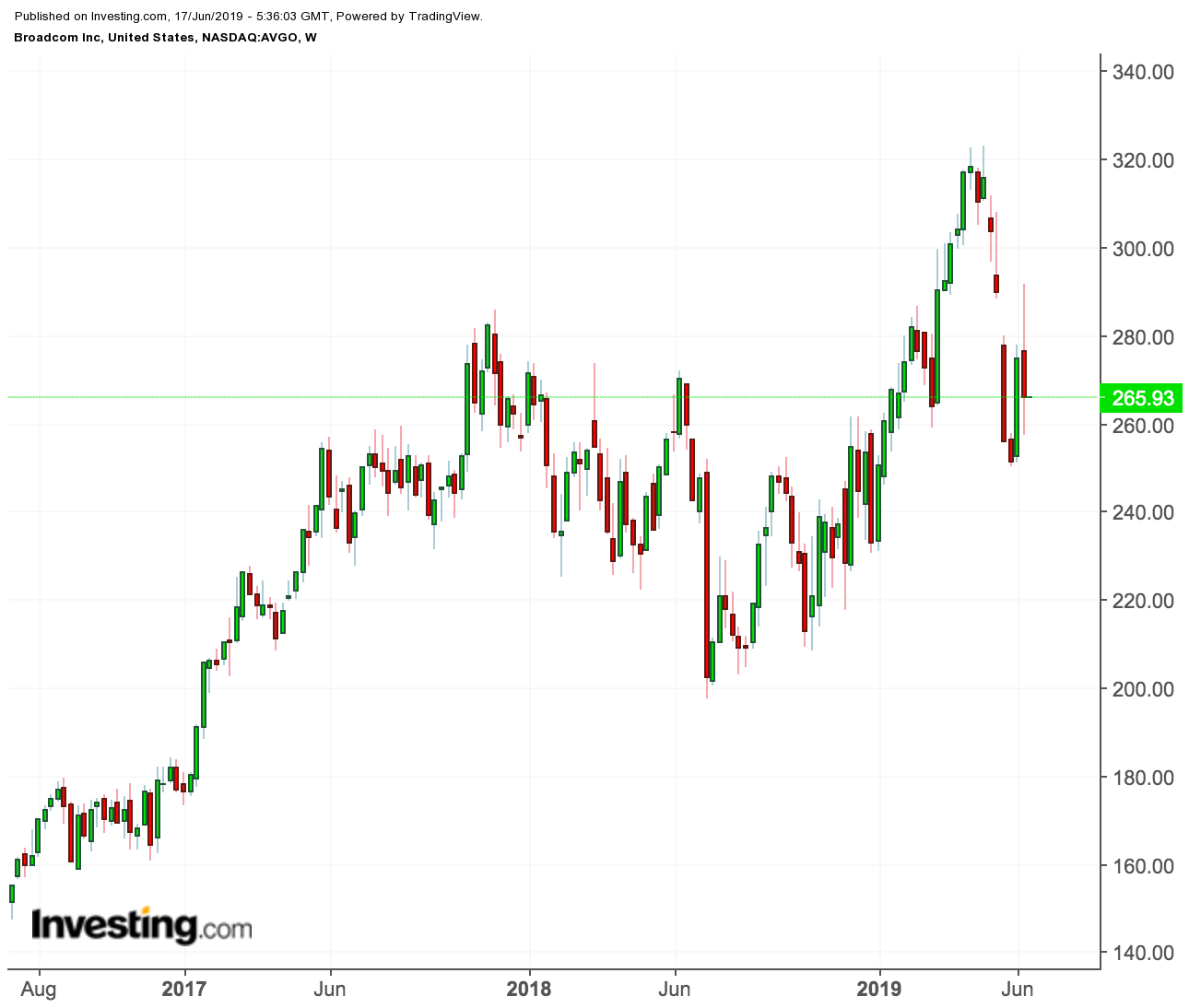Broadcom's (NASDAQ:AVGO) recent bleak demand forecast provided investors in chip stocks yet another ominous sign. Its broad product line and global customer base make the chipmaker's earnings an important indicator of things to come. Unfortunately, the news isn't good.
The San Jose, California-based company, after market close on Thursday, not only cut its annual forecast, but also warned that the U.S.-China trade dispute is causing a “sharp and rapid contraction,” in demand from customers, including the largest smartphone makers, such as Apple (NASDAQ:AAPL) and Chinese telecom giant Huawei Technologies.
Broadcom is also one of the leading suppliers of networking components used by large data center operators such as Alphabet's (NASDAQ:GOOGL) Google and Amazon.com's (NASDAQ:AMZN) cloud division. Following the U.S. ban on exports to Huawei, Broadcom is likely to suffer a $2-billion hit on its annual sales, a much higher number than anticipated.
“It is clear that the U.S.-China trade conflict, including the Huawei export ban, is creating economic and political uncertainty and reducing visibility,” Chief Executive Officer Hock Tan said on a conference call, according to Bloomberg. “Our customers are actively reducing inventory levels.”
Broadcom, which said the reduced revenue forecast is still “very conservative,” is among the first chip makers to quantify the impact of the escalating U.S.-China trade war. There's no doubt that this offers a grim outlook for other semiconductor stocks as well.
Broad-based Demand Weakness
Broadcom shares plunged as much as 9% in Friday trading, before recovering some ground to close down 5.6% at $265.93. The stock is up just about 5% this year, vs the 18% gains in the Philadelphia Semiconductor Index, the industry benchmark.

The company’s latest earnings, plus the weak performance from other top chip companies, confirm our earlier bearish call on the industry. Semiconductor companies have a major portion of their growth tied to China, where spending on gaming and artificial intelligence has fueled demand for their products. A slowing global economy, especially a more pronounced slowdown in China, will continue to keep demand under pressure this year.
The latest guidance from Broadcom also shows that the U.S.-China trade spat is not the only reason demand is slowing and that the weakness is probably more broad-based. According to the chipmaker, equipment manufacturers to which it supplies parts were slowing purchases even before the Huawei ban and the $2-billion revenue shortfall reflects the possibility of a more pronounced contraction.
Bottom Line
With almost all major earnings reports out from the big chip producers, it’s very clear that this is not the right time to buy chip stocks. This year’s rally in these stocks was based on very weak ground and we see these gains evaporating quickly as other top players follow Broadcom and cut their revenue forecasts. A scenario where demand could revive quickly for chip producers is too optimistic, in our view. Investors would be wise to stay on the sidelines.
